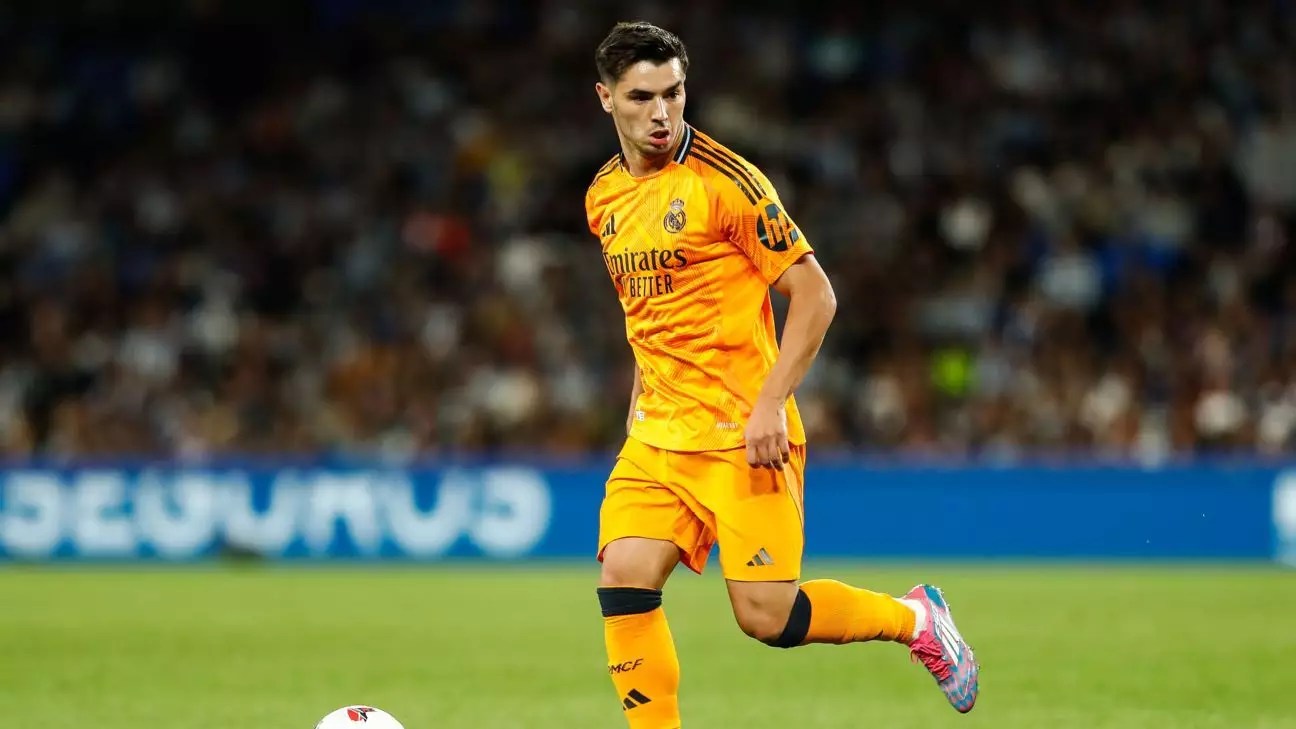Carlo Ancelotti, the distinguished coach of Real Madrid, has pointed a finger at the relentless fixture schedule as a significant factor contributing to the debilitating injury list this season. This was underscored by the recent setback involving Brahim Díaz, who had to leave the pitch during the first half of Madrid’s 2-0 LaLiga victory against Real Sociedad due to an abductor muscle injury. Reports indicate that Diaz could be sidelined for an extended period, initially feared to be three months, although there is a glimmer of hope for a swifter recovery.
Ancelotti expressed his frustration during a press conference prior to an important Champions League match against Stuttgart. He highlighted that the onset of a new competition not only introduces added pressure but also means more matches to navigate. This congested schedule has taken its toll on several key players, including midfielders Jude Bellingham, Aurélien Tchouaméni, Eduardo Camavinga, and Dani Ceballos, raising concerns over player fitness and the risk of further injuries.
During his address, Ancelotti made a compelling plea to reconsider the current number of games in professional football, advocating for a balance between an engaging competition and the wellbeing of players. He stated, “We’ve looked at what we can do, but it’s out of our hands,” reflecting the struggles of coaches to manage player workloads amidst a demanding calendar. His assertion that fewer but more captivating matches could enhance the overall quality of the sport resonates with many football enthusiasts and stakeholders who share similar concerns.
Furthermore, Ancelotti assured fans that key players like Bellingham and Tchouaméni would be available for the upcoming match, indicating that while injuries have plagued the squad, they also have the depth to navigate these challenges.
Amidst these discussions, Ancelotti also defended one of his star players, Vinícius Júnior, who has faced significant criticism for his on-field demeanor, particularly after a contentious goal celebration that involved silencing the crowd. Ancelotti has contextualized Vinícius’ actions as a response to the incessant abuse he faces from opposing fans, suggesting that such reactions are normal in the face of provocation.
“It’s a reaction to something ugly,” Ancelotti remarked, emphasizing the need to focus on the underlying issues leading to such exchanges, rather than placing blame on the players. He drew attention to the negative environment inflicted upon Vinícius, suggesting that hostility stems from his talent and perceived threat on the field, which opposing supporters contest.
Defender Dani Carvajal echoed Ancelotti’s sentiments, bringing light to the emotional weight that such hostility carries. The notion that players are not merely entertainers, but human beings with feelings and vulnerabilities, invites broader discussions about sportsmanship and fan behavior in stadiums.
Conclusion: A Coach’s Perspective on Preserving Player Welfare
As the season progresses, Ancelotti’s comments highlight the delicate balance between competition and player welfare in modern football. The grueling fixture schedule has raised pressing questions about the sustainability of the sport, especially for clubs inundated with injuries. Meanwhile, the situation involving Vinícius Júnior serves as a poignant reminder of the broader societal issues that infiltrate sports, prompting a call for more compassionate discourse among fans and players alike. As Ancelotti navigates these complexities, his insights could serve as foundational to evolving football in a way that prioritizes both thrill and the players’ health.


Leave a Reply